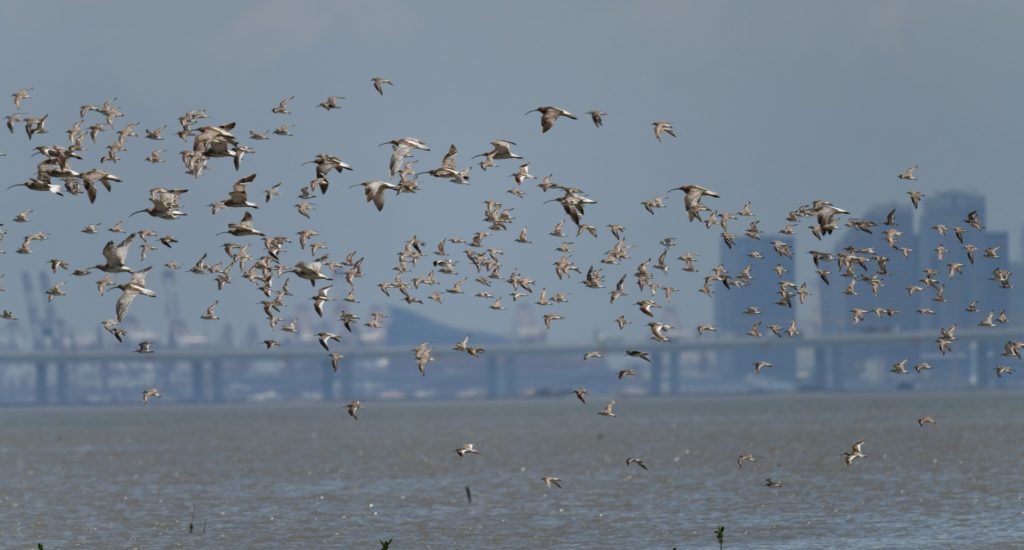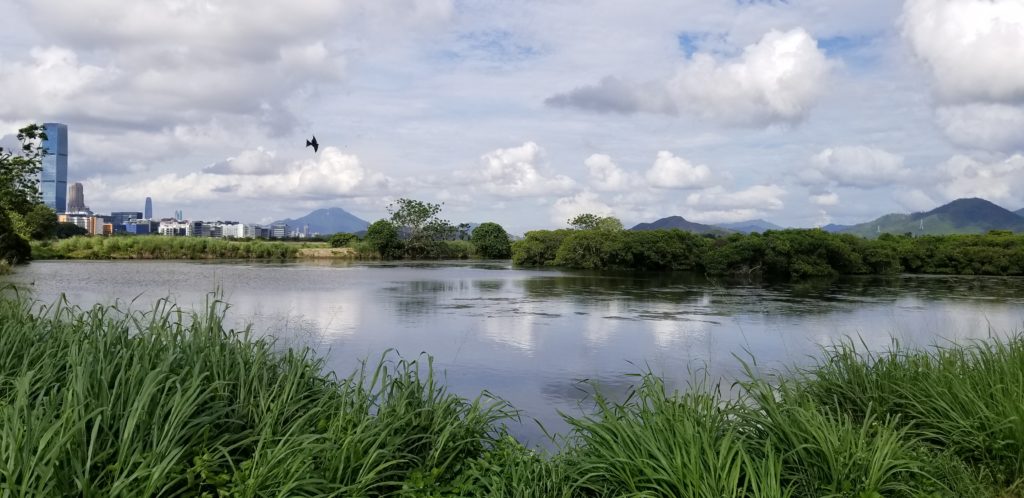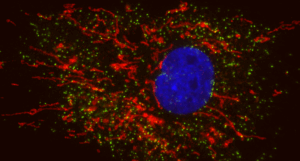Urbanisation threatens ecological health of South China’s Greater Bay Area

Credit S Y Lee
Rapid urbanisation in South China’s Greater Bay Area poses a significant threat to the ecological well-being of Deep Bay and its surrounding wetlands, new research shows.
The study, by the Chinese University of Hong Kong (CUHK) and the University of Exeter, highlights the urgent need to address the impact of urbanisation on the region’s fragile coastal wetland ecosystems, especially their vital role in supporting migratory waterbirds.
It focused on Deep Bay, in the Pearl River estuary, which plays a crucial role as a refuelling ground for migratory waterbirds along the East Asian-Australasian Flyway.
The team analysed long-term environmental data spanning over 40 years to reveal the alarming consequences of dramatic changes.
They revealed a 30% decline in various water bodies such as mudflats, fishponds and geiwais (shallow ponds found in mangrove areas) between 1988 and 2020. Simultaneously, there was a 15.6 km2 increase in impervious surface coverage, primarily due to the conversion of fishponds and wetlands into concrete structures.
This change in land use has indirectly impacted the water quality in Deep Bay.
The population of wintering waterbirds, as indicated by the Hong Kong Bird Watching Society’s annual monitoring data, has decreased from its peak in 2008 (90,986 individuals) to a recent minimum in 2022 (48,157 individuals).
Notably, certain waterbird groups such as larids (gulls and terns) and railids (rails and coots) have experienced significant declines.
The study established a strong correlation between the population of waterbirds and the biomass of the macrobenthos (animals living in or on the mudflat, such as worms, crabs, and mudskippers), which are easily influenced by changes in water quality.
It also highlighted significant transformations in water quality and changes in the macrobenthos community, directly associated with large-scale reclamation projects and the expansion of impervious surfaces.
The growth of megacity Shenzhen has been a key driver of these changes, leading to a decline in Deep Bay’s capacity to support migratory waterbird populations.
Dr Felix Leung Pui-kin, of CUHK, said: “Our research provides compelling evidence of the adverse effects of urbanisation on the ecological health of the Greater Bay Area.
“The loss and degradation of wetland habitats, coupled with declining water quality, pose a significant threat to the survival of migratory waterbird populations and the overall biodiversity of the region.”
Dr Leung further emphasised the significance of striking a balance between urban development and environmental conservation.

“Deep Bay holds a vital position in supporting migratory waterbird populations along the East Asian-Australasian Flyway,” he said.
“It is imperative for policymakers to give precedence to the protection and sustainable management of Deep Bay.
“With the development of the Northern Metropolis, it is crucial that we exercise utmost caution when delineating the urban area boundary.
“Our primary objective should be to prevent further fragmentation of the existing wetland habitats while simultaneously providing ample buffer area for the preservation of their fauna and flora.”
The team suggests strict regulations and guidelines for managing and mitigating the adverse impacts of urbanisation on wetland ecosystems.
They also advocate for the adoption of nature-based solutions, sustainable land-use practices and the conservation of key habitats within the Greater Bay Area.
To develop and implement effective conservation strategies, the team highlighted the necessity of collaboration among various stakeholders, including the government, local communities and environmental organisations.
In addition, through the implementation of educational campaigns and community engagement initiatives, public awareness about the ecological importance of Deep Bay and the need for its protection can also be raised.
The team envisioned that by prioritising the conservation of Deep Bay and other wetlands in the Greater Bay Area, the region’s ecological legacy as well as its exceptional biodiversity may be sustained.
The research was led by Professor Joe Lee Shing-yip, Senior Research Fellow (Honorary), and Dr Leung from the Institute of Environment, Energy and Sustainability at CUHK, with the collaborating team at Exeter led by Professor Brendan Godley.
The study was funded by the Environmental Sustainability and Resilience (ENSURE) programme.
The paper, published in the journal Science of the Total Environment, is entitled: “Rise and fall of an avian oasis: Tracking the impacts of land use change in a key coastal wetland in the world’s largest megalopolis.”



